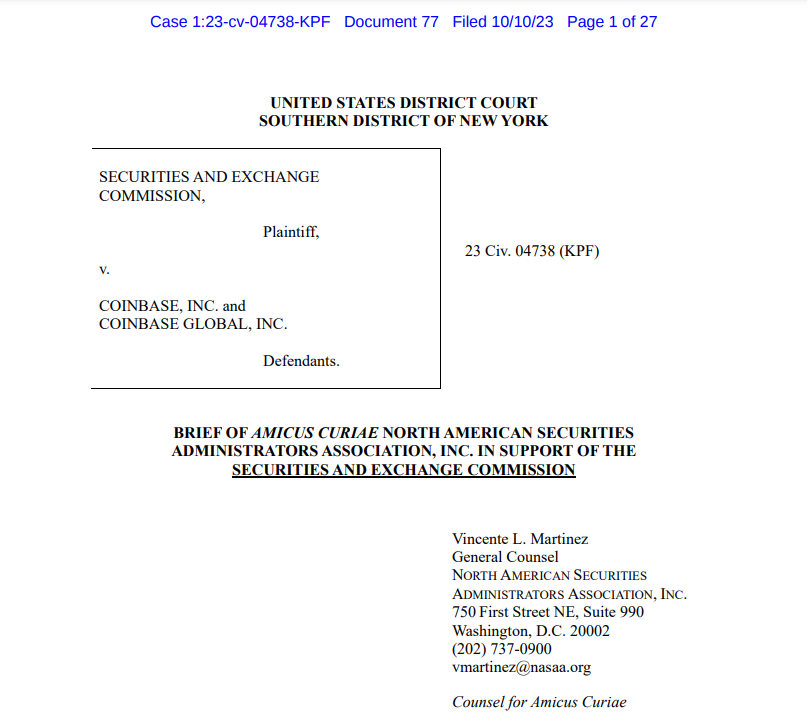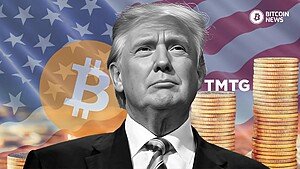In the ongoing legal battle between the United States Securities and Exchange Commission (SEC) and Coinbase, a group of state securities regulators has supported the former, arguing that digital assets should not receive preferential treatment.
The North American Securities Administrators Association (NASAA) presented its stance in an amicus brief recently, expressing support for the SEC’s legal actions against Coinbase. Notably, in June, the SEC accused the publicly traded digital asset exchange of operating without the necessary licenses as an exchange, broker, and clearing agency.

The Securities Regulators’ Stance on the Case
State securities regulators emphasized that the court should not allow Coinbase to avoid compliance by narrowly interpreting the law that applies to other participants in the nation’s securities markets.
Related reading: Coinbase Demands Answers From SEC In Response To Recent Lawsuit
The regulators voiced that the court should ensure equitable treatment for digital assets within the legal framework, stating that the SEC’s case against Coinbase is not “extraordinary.”
They cited the Howey Test, which determines whether certain transactions should be categorized as investment contracts and thus fall under securities regulations or not. However, there has been disagreement within the digital asset industry about how the SEC has applied this traditional test to digital assets.
Despite the controversy, the SEC maintains that particular digital assets that meet the criteria for investment contracts under the Howey Test are firmly grounded in existing legal standards. This viewpoint has recently received support from the NASAA, whose general counsel, Vincente Martinez, stated the regulator’s position is neither “novel nor extraordinary.”
Related reading: Bitcoin Is The Only Winner In SEC Clash
NASAA further challenged Coinbase’s argument by invoking the “major questions doctrine,” which requires the executive agencies to seek congressional approval when dealing with matters of significant political or economic importance. Martinez commented on the matter by stating:
“It cannot be the law that an agency needs specific Congressional authorization to apply existing legislation to new fact patterns in complex and changing financial markets.”
Digital Assets Don’t Contribute to the Economy: NASAA
Moreover, Martinez boldly states that digital assets cannot be reasonably deemed a substantial contributor to the American economy. He writes:
“With very few exceptions, digital assets are not widely accepted to pay for goods or services, nor can they be used to satisfy obligations to the government such as fees or taxes. Coinbase overstates both the size and significance of this ‘industry,’ particularly the portion that securities regulators oversee.”
NASAA comprises 67 members, including securities regulators from all 50 U.S. states, the District of Columbia, Puerto Rico, the U.S. Virgin Islands, Canada, and Mexico. The organization plays a crucial role in investor protection and regulation in North America.
Related reading:










